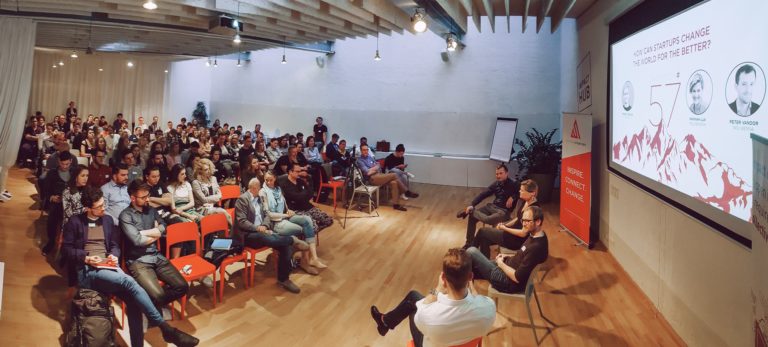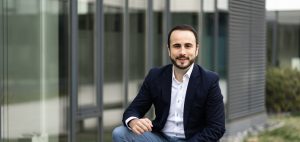Tanking place last Tuesday at Impact Hub Vienna, Stammtisch #57 was all about Social Entrepreneurship. Hannah Lux (Vollpension), Frederik Debong (mysugr) and Peter Vandor (WU Vienna) discussed how startups can change the world for better. And let us tell you this, there are many ways they can!
Social Entrepreneurs
“Why would I found a business if I didn’t have the goal to change the world for better?” Hannah Lux drops a bomb with her first commentary of the night. And shows that social entrepreneurs are intrinsically motivated to follow a strong mission. A mission to have a positive impact on this planet – on a smaller or bigger scale. With this strong mission come tough decisions, though. Well, according to our podium guests, it’s not about “taking the easy way, it’s taking the way with more impact”.
Measuring Impact
Speaking of taking the road with more impact, the question arises: How do you properly measure impact? In a world of KPI’s and data-driven everything, how can we prove – with numbers – that impact is being made? “There is a whole industry focusing on this topic”, says Peter Vandor. “If I see people from all ages connecting with each other in a natural environment – when I see people blossoming in this environment – I know I have made an impact”, adds Hannah Lux.
But is impact the only way to measure success in social businesses? Is the trade-off of being social not being economically successful? Is it just a nice dream of naive people who think they can actually change this planet? A hundred percent not. If anything, running a successful social business is way harder than a common profit-driven company. Because it has to be social AND a business. It has to have an impact while still being economically sound.
Mission Drift
What happens, though, when the venture gets bigger? When partners are coming on board or the company goes public? That’s the moment it gets harder and harder to prioritize having an impact. Mission drift is – in many cases – bound to happen. As soon as more stakeholders get involved, it’s easy to lose sight of what you set out to do in the first place. The company becomes a balance sheet and it’s all about investors and their return. “To avoid mission drift, you have to work on it from the beginning. Making sure the mission is ingrained in the team”, says Peter Vandor. And even when selling the company to a huge corporate, it’s possible to stay true to your mission, as Frederik and mysugr show: “Before selling, we made sure everything was going to stay the same. To have the same people making decisions. The same team. The same mission. And nobody is contractually forced to stay.” Love it or leave it.
What’s left to say is this: It’s on you – don’t say “I wish somebody would make the world a better place”. YOU can make the world a better place.
See you all at next month’s Stammtisch – #58, where you can tell us about how YOU want to make the world a better place, and find out how to score an investment at the same time.
Shoutout to Hanna, Frederik and Peter for being part of April’s Stammtisch and inspiring us to have an impact!






